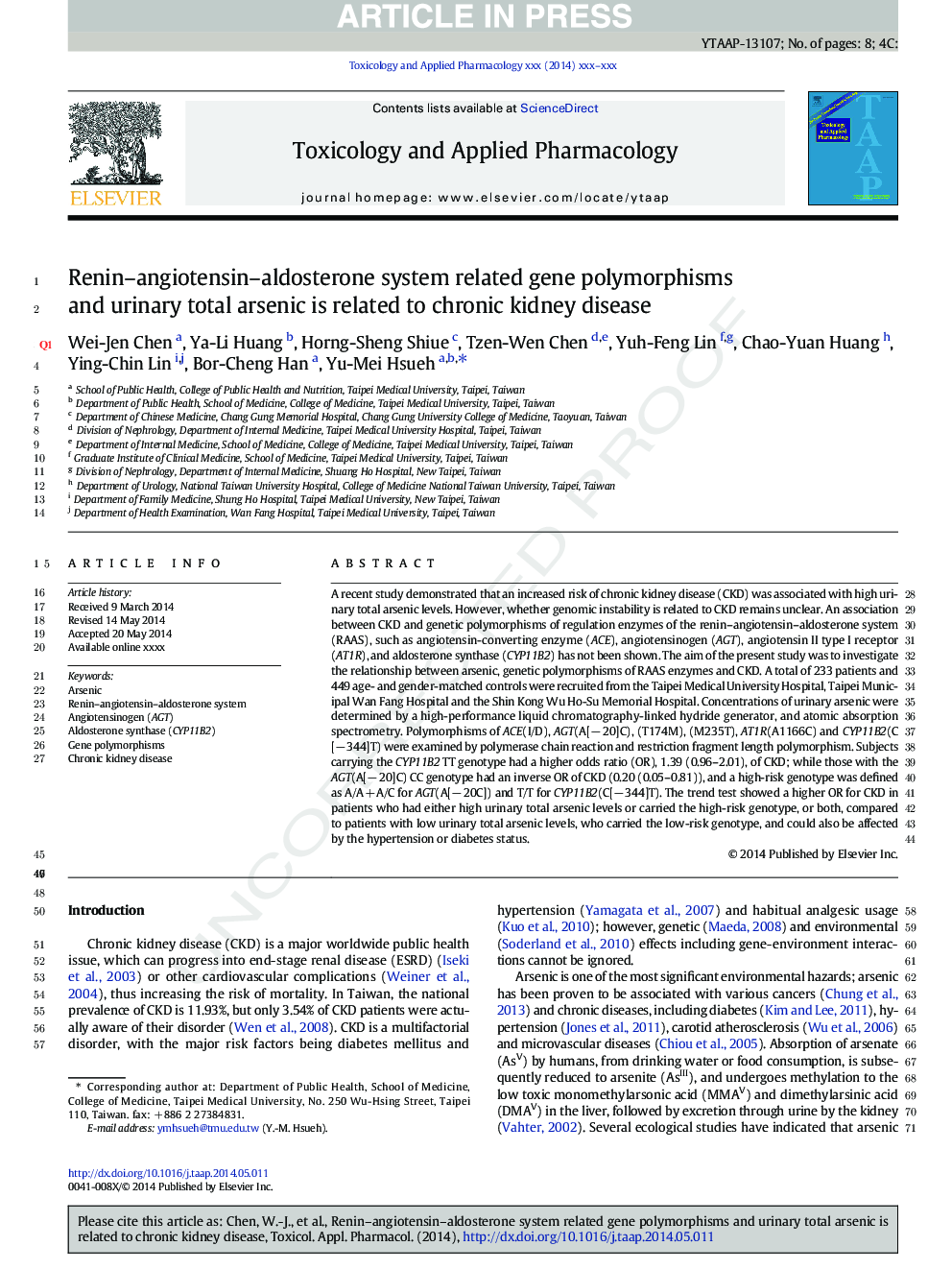| Article ID | Journal | Published Year | Pages | File Type |
|---|---|---|---|---|
| 5846085 | Toxicology and Applied Pharmacology | 2014 | 8 Pages |
Abstract
A recent study demonstrated that an increased risk of chronic kidney disease (CKD) was associated with high urinary total arsenic levels. However, whether genomic instability is related to CKD remains unclear. An association between CKD and genetic polymorphisms of regulation enzymes of the renin-angiotensin-aldosterone system (RAAS), such as angiotensin-converting enzyme (ACE), angiotensinogen (AGT), angiotensin II type I receptor (AT1R), and aldosterone synthase (CYP11B2) has not been shown. The aim of the present study was to investigate the relationship between arsenic, genetic polymorphisms of RAAS enzymes and CKD. A total of 233 patients and 449 age- and gender-matched controls were recruited from the Taipei Medical University Hospital, Taipei Municipal Wan Fang Hospital and the Shin Kong Wu Ho-Su Memorial Hospital. Concentrations of urinary arsenic were determined by a high-performance liquid chromatography-linked hydride generator, and atomic absorption spectrometry. Polymorphisms of ACE(I/D), AGT(A[â 20]C), (T174M), (M235T), AT1R(A1166C) and CYP11B2(C[â 344]T) were examined by polymerase chain reaction and restriction fragment length polymorphism. Subjects carrying the CYP11B2 TT genotype had a higher odds ratio (OR), 1.39 (0.96-2.01), of CKD; while those with the AGT(A[â 20]C) CC genotype had an inverse OR of CKD (0.20 (0.05-0.81)), and a high-risk genotype was defined as A/A + A/C for AGT(A[â 20C]) and T/T for CYP11B2(C[â 344]T). The trend test showed a higher OR for CKD in patients who had either high urinary total arsenic levels or carried the high-risk genotype, or both, compared to patients with low urinary total arsenic levels, who carried the low-risk genotype, and could also be affected by the hypertension or diabetes status.
Related Topics
Life Sciences
Environmental Science
Health, Toxicology and Mutagenesis
Authors
Wei-Jen Chen, Ya-Li Huang, Horng-Sheng Shiue, Tzen-Wen Chen, Yuh-Feng Lin, Chao-Yuan Huang, Ying-Chin Lin, Bor-Cheng Han, Yu-Mei Hsueh,
